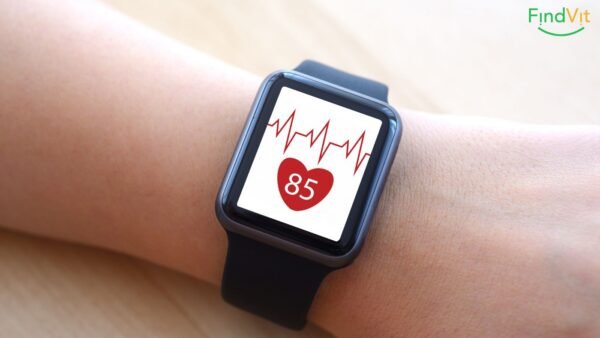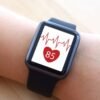Higher levels of omega 3 improve heart rate in healthy adults. Omega 3 fatty acids provide many health benefits, including for the cardiovascular system*. A new study, which has given us more knowledge in this area, has shown a link between the omega-3 index (O3I) and the heart's serious recovery after physical exertion.
Heart rate
Heart rhythm recovery heart rate recovery, HRR) shows how the heart returns to a resting state after exercise. It is also believed to indicate a balance between sympathetic and parasympathetic nervous system activity. A poor HRR is associated with an increased risk of cardiovascular disease and all-cause mortality 1. Thus, many adults who want to live longer and healthier lives should measure and improve their HRR as part of their health care.
O3I is an indicator of the cumulative percentage of eicosapentaenoic acid (EPA) and docosahexaenoic acid (DHA) in red blood cell membranes. This percentage is characterized by an inverse relationship with cardiovascular diseases: i.e. i.e. a higher percentage is strongly associated with a lower overall risk of cardiovascular disease 2. The average O3I in the United States is about 4.5 percent, while the desired level for good cardiovascular health should be above 8 percent.
Omega 3 effects on the heart results
In a new study 3, which was published in 2020. In November, researchers at the Cooper Institute in Texas evaluated data from 14,000 healthy adults (one-third women, two-thirds men, with an average age of 50) who underwent a maximal exercise test. Overall, higher O3I was associated with better HRR in both sexes. Better HRR was also associated with more health-promoting measures of BMI, blood pressure, and blood lipids (triglycerides, LDL, and HDL cholesterol). The researchers concluded that higher O3I may be an effective cardioprotective measure in healthy adults. in 2018 a study conducted found that consuming two grams each day fish oil in 13 weeks, O3I increases by 3 percent 4.
To find out about the body's personal need for minerals or vitamins, you can find out by taking a health test prepared by health professionals "Your Day"
Important!
*In time, pay attention to the signals sent by your well-being;
*Replenish the body with natural minerals or vitamins;
*Enjoy energy and good mood every day!
† Our website provides general information only. If you have a specific illness or are taking additional medications or supplements, consult your doctor or pharmacist.
Note. William Harris, one of the 2020 the author of the November study is one of the developers of O3I, so this data may present him with a conflict of interest
Literature:
- Qiu S, Cai X, Sun Z, et al. Heart rate recovery and risk of cardiovascular events and all-cause mortality: a meta-analysis of prospective cohort studies. J Am Heart Assoc 6(5):e005505. doi:10.1161/JAHA.117.005505
- The omega-3 index: a novel way to determine cardiovascular risk – Cooper Institute. https://www.cooperinstitute.org/2016/10/14/the-omega-3-index-a-novel-way-to-determine-cardiovascular-risk [Accessed January 25, 2021]
- Farrell S, DeFina L, Tintle N, et al. Higher omega-3 index is associated with more rapid heart rate recovery in healthy men and women. Prostaglandins Leukot Essent Fatty Acids 2020; 163. doi:10.1016/j.plefa.2020.102206
- Walker R, Jackson K, Tintle N, et al. Predicting the effects of supplemental EPA and DHA on the omega-3 index. Am J Clin Nutr 2019;110(4):1034-1040.











